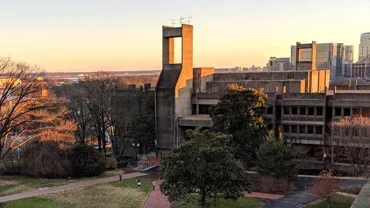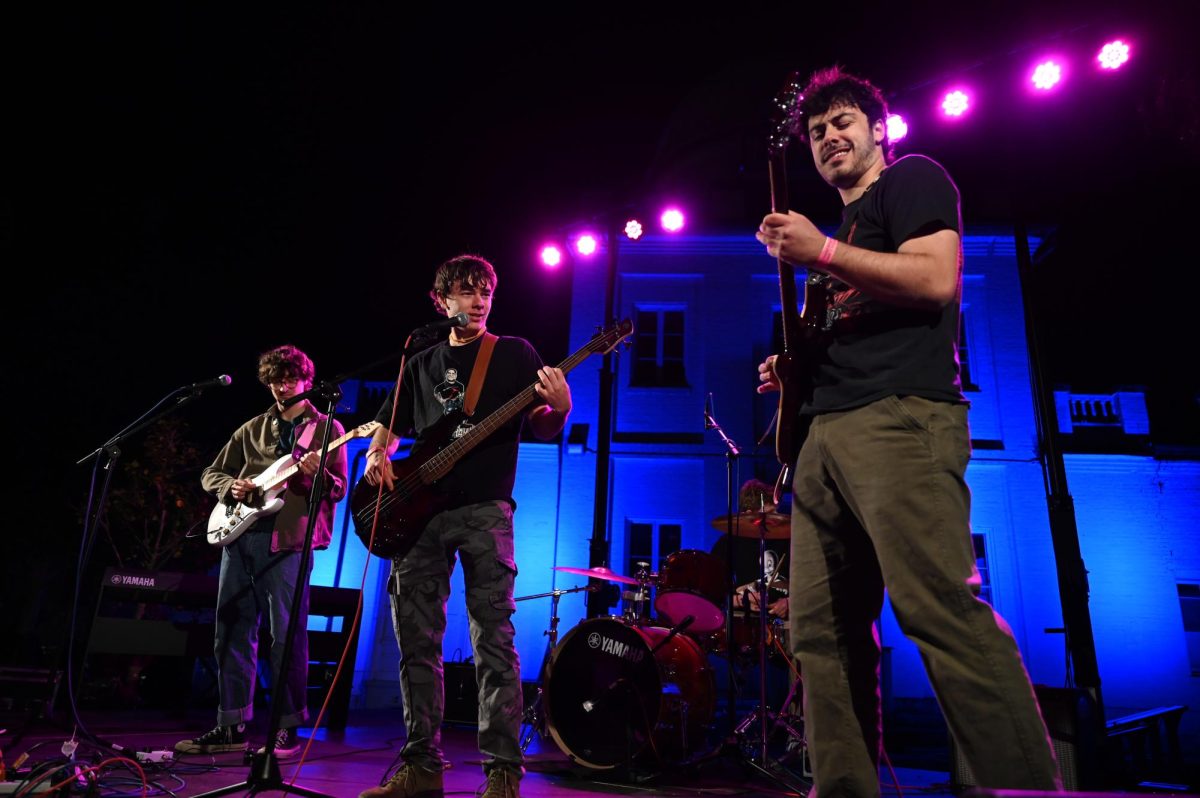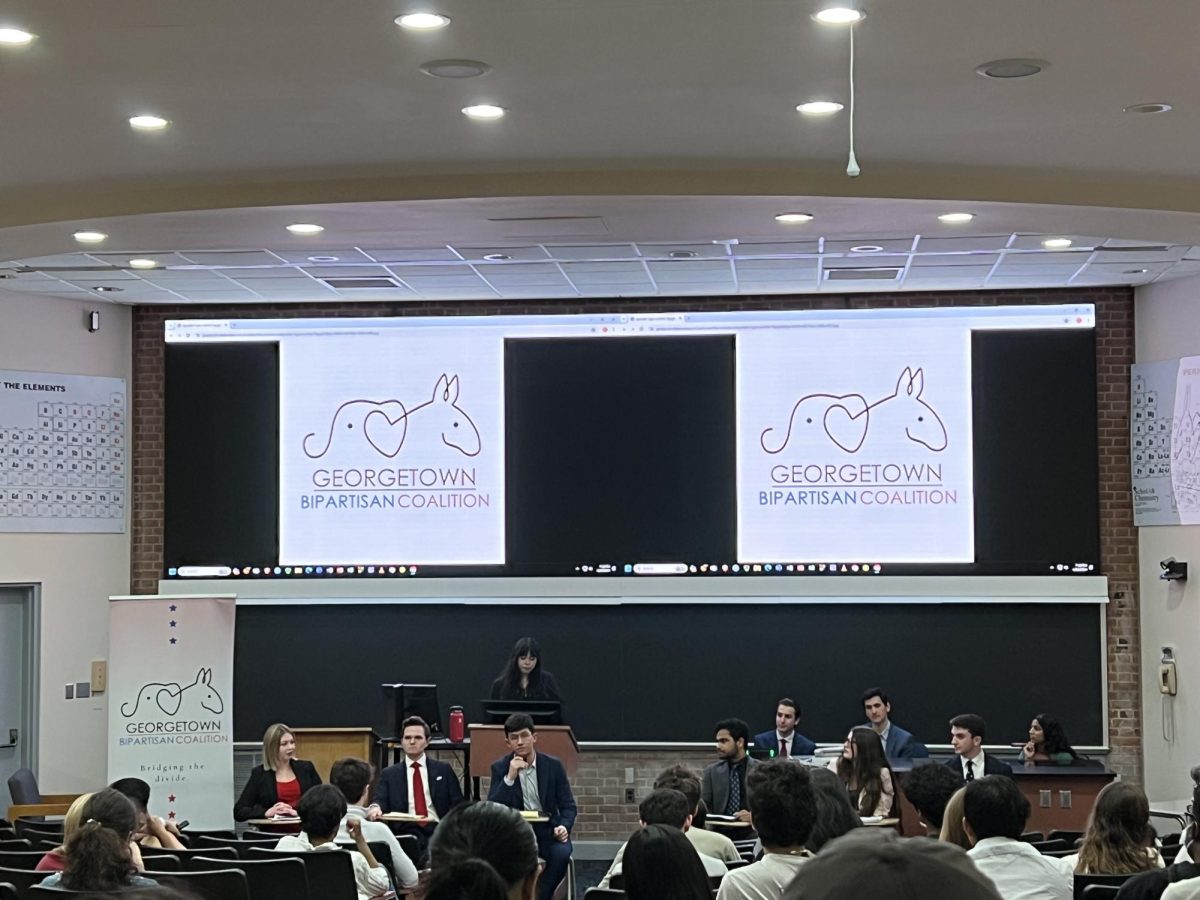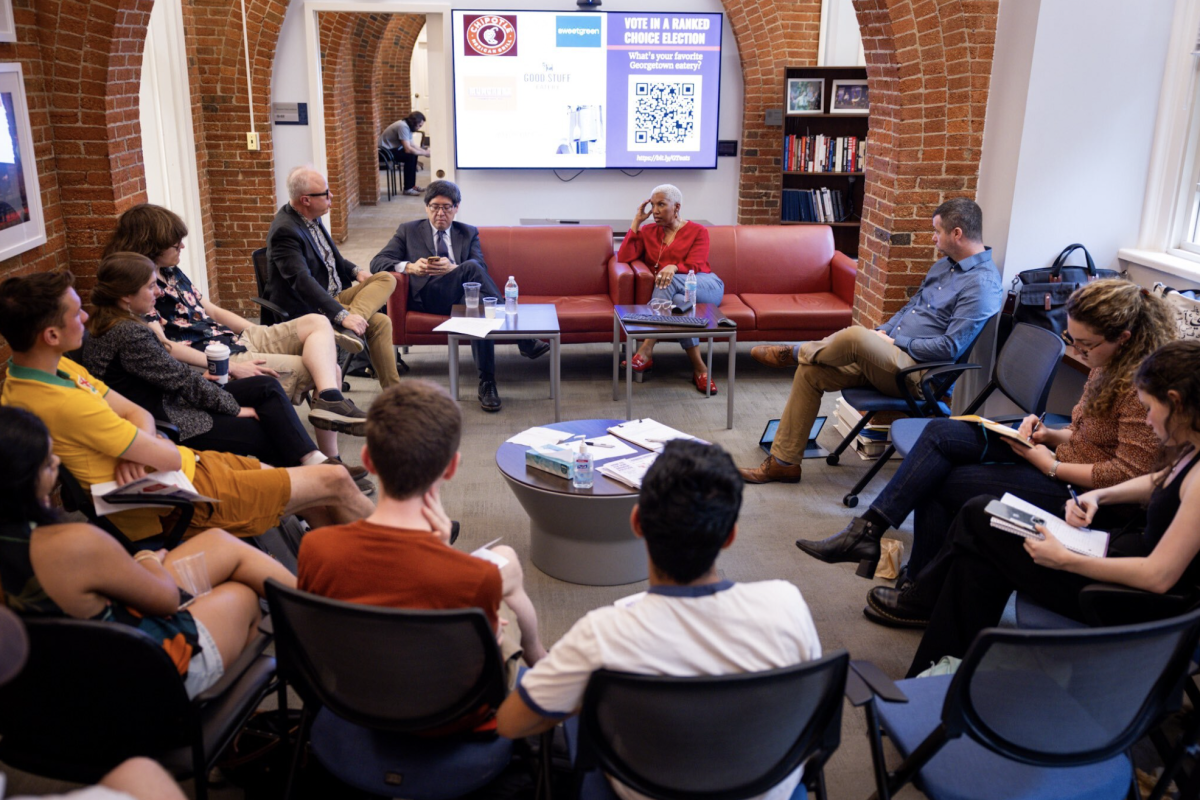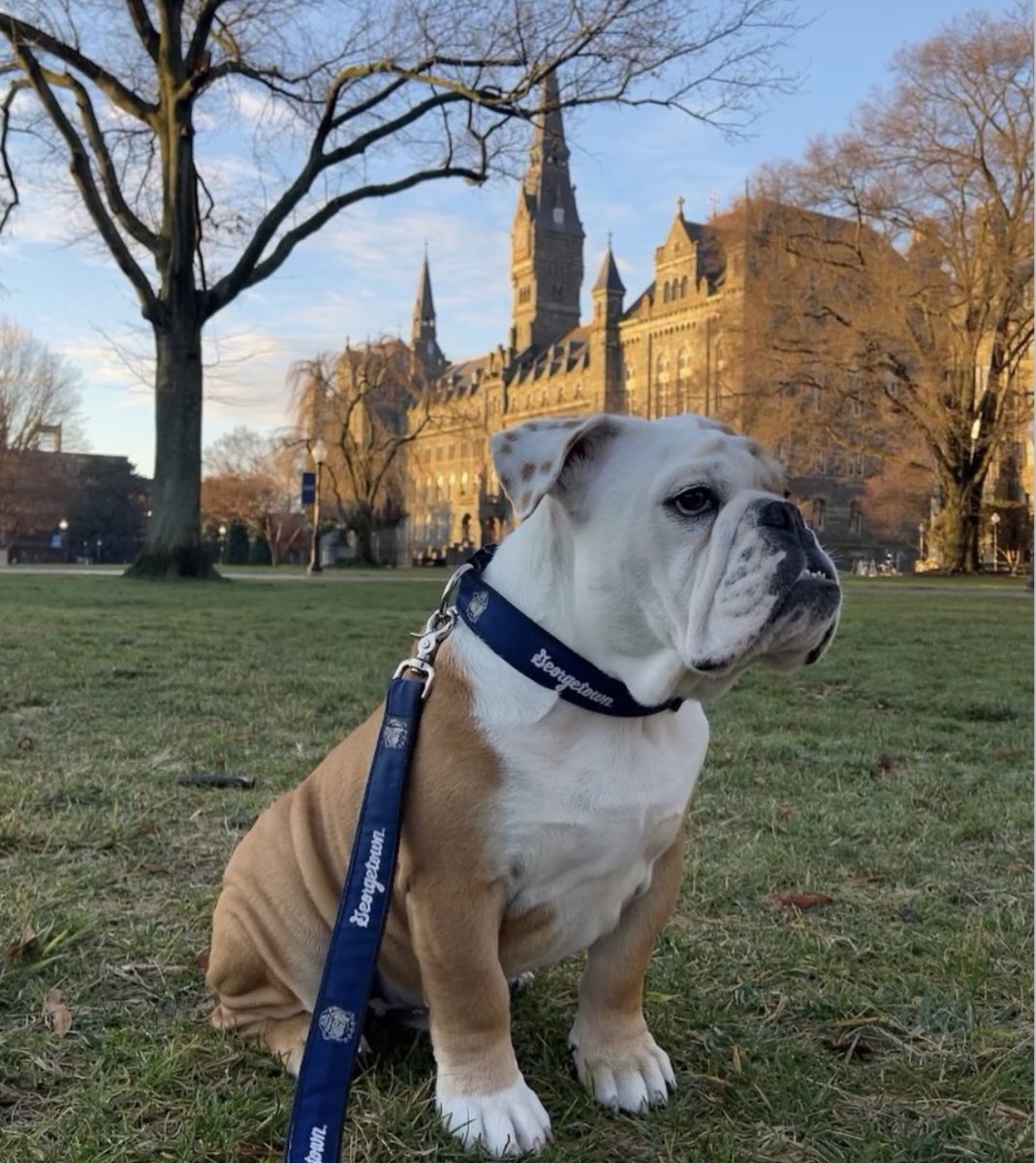Armed with patience and a resilient sense of humor, Gen. David Petraeus, commander of the U.S. Central Command, addressed students, faculty and staff yesterday afternoon in Gaston Hall, amid disturbance caused by about 15 anti-war protesters.
While his speech was originally slated to be an update address sponsored by the Institute for the Study of Diplomacy, after making brief remarks, Petraeus turned the event into a forum for open and candid conversation. He was cut off several times throughout the event, however, due to interruptions by protesters, who rose from their seats to read aloud names and ages of victims of the wars in Iraq and Afghanistan. The protesters were escorted out after being warned multiple times about the university’s free speech policy. Some were also standing with signs outside of Healy Hall.
The protesters were unavailable for comment.
Due to the interruptions, much of the discussion time was cut short; attendees did have the opportunity to ask questions concerning the United States’ current and past military operations in the Middle East, however. One student asked Petraeus what he envisions in a victory.
“This is not a war, this is not a conflict, this is not an endeavor in which one takes the hill, plants the flag and goes home to a victory parade. Rather this is something that requires a sustained, substantial commitment. We are fighting a network of extremists and extremism, and we have to go after that network wherever it is,” Petraeus said.
Petraeus continued by stating that winning, to him, was ensuring the security of American citizens as well as the safety of our major allies and partners.
Petraeus spoke at greater length on the United States’ current involvement in Afghanistan. He stated that success in the region depended on our ability to build relationships with leaders in Pakistan and in Afghanistan.
“Afghanistan is going to be the longest campaign in the long war,” he said. “It’s going to get tougher before it gets easier. There is an enormous amount of hard work to do there. There is time we have to make up for, without a question.”
Petraeus also stated that President Obama’s July 2011 withdrawal date for Afghanistan is dependent on conditions on the ground and will be executed at a responsible pace.
Some asked Petraeus how he is able to apply the lessons from Iraq or the Vietnam War, which was the subject of his dissertation at Princeton University, to the current counterinsurgency in Afghanistan.
“The biggest lesson [that I learned from Vietnam] was about the use of lessons,” Petraeus said. “It was the fact that again, every situation is unique. That, as you try to employ lessons from one conflict to another, you have to be very careful to avoid just taking it wholesale and importing it.”
Especially when comparing Iraq and Afghanistan, Petraeus cautioned that the strategies employed in the two countries could not be identical. He stated that one of the greatest challenges that the United States faces in Afghanistan, which was not as prevalent in Iraq, is the high illiteracy rate.
“[Afghanistan is] an area where you have to proceed with great care and with a very nuanced, granular appreciation for the local situation. It is a valley-by-valley, village-by-village effort. Much more so than what was the case in Iraq,” Petraeus said.
Some of the students who were present at the event were unhappy with the interruptions caused by the protesters, and believe that it reflected poorly on the university.
“What I took away from this speech was how embarrassing it was to see those kids standing up. There is a way to go about these things, and it was extremely rude,” Matt Loyd (SFS ’10) said.
“I feel that freedom of speech is a two-way street, and clearly the protesters didn’t feel the need to give Gen. Petraeus a chance to respond,” said Matt Hipple (SFS ’09), an ensign in the Navy.
Student political groups on campus also criticized the protesters for expressing their views inappropriately.
“We, the Georgetown University College Democrats, believe that right to free speech defines our American democracy. However, it is only when this free speech is combined with a respect for a diversity of opinions that we can have constructive and civil political discourse,” William Vogt (SFS ’12), GUCD communications director, wrote in a statement. “Short of that, we do ourselves and our nation a disservice when we drown out the voices of those with whom we disagree, closing our minds and stifling debate.”
The Georgetown University College Republicans echoed GUCD’s sentiments.
“[We] condemn the protesters’ actions at the event today. While everyone is entitled to have their own point of view, they still must respect the position and respect the military,” said Geoffrey Bible (SFS ’12), chairman of GUCR.
*For continuing coverage of this and other news stories, check out [The Hoya’s news blog, Saxaspeak](https://saxaspeak.thehoya.com).*”


